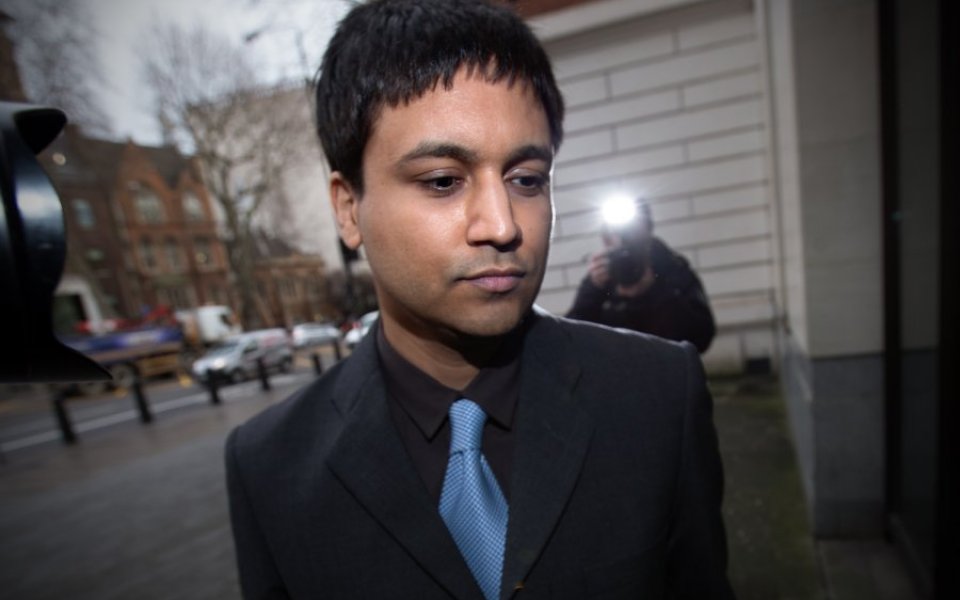Hound of Hounslow trader Navinder Singh Sarao allegedly “heavily engaged” in spoofing on day of “flash crash”

Lawyers for the US government in an extradition case against a British trader nicknamed the "hound of Hounslow" have said that he was allegedly heavily invested in spoofing on the day of the flash crash.
Navinder Singh Sarao, who appeared in Westminster Magistrates' Court today, has been accused of contributing to 2010's so-called flash crash.
Sarao, who was dressed smartly in a dark suit, only spoke in front of the court in the morning to confirm his name, address and date of birth.
The defendant spent most of his time in the dock with his head down.
The US authorities have accused Sarao of a string of fraud and manipulation offences, as they allege he used a customised piece of software to place large numbers of sell orders with no intention of completing the transactions and then cancelling them.
By doing this, the US authorities claim Sarao was able to take advantage of artificially lowered prices on futures he was interested in, netting him $40m (£27.5m) over the course of several years.
In the afternoon of 6 May 2010, the Dow Jones Industrial Average plummeted several hundred points in a matter of minutes, although it recovered later on in the day, in an event dubbed the "flash crash".
Representing the US government, Mark Summers QC told the court that the "government alleges that the defendant on this day was heavily engaged in his spoofing activities".
In total, the offences the US authorities accused Sarao of carry a maximum sentence of 380 years.
The extradition hearing is expected to go on until tomorrow, although it is unclear how soon after the end of the hearing a ruling will be made.
After this initial extradition hearing, there is the possibility that either side could appeal to the High Court should the ruling not be in their favour.
Sarao was arrested in April last year.
Over the summer, his legal team fought to have his bail reduced from just over £5m, as they said the US authorities had frozen the assets he held in the country. The authorities later reached an agreement and Sarao was let out on bail in August.